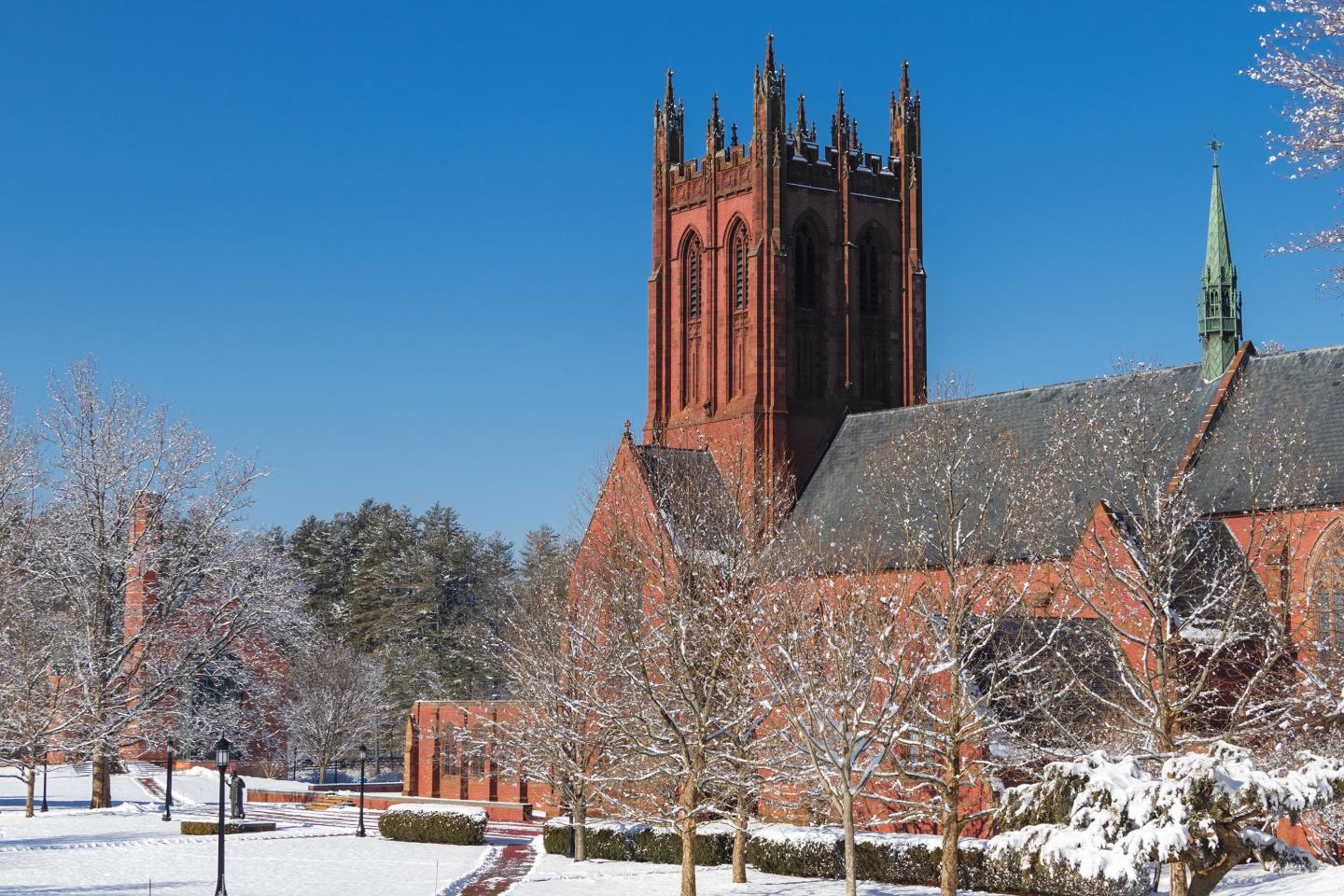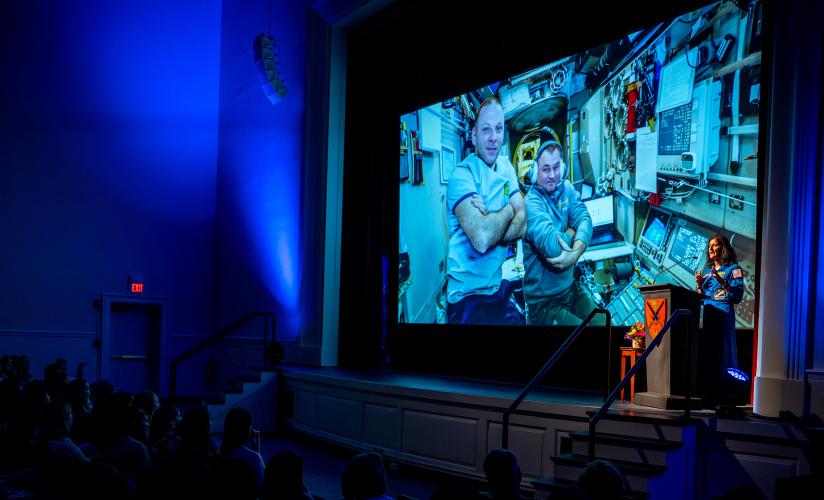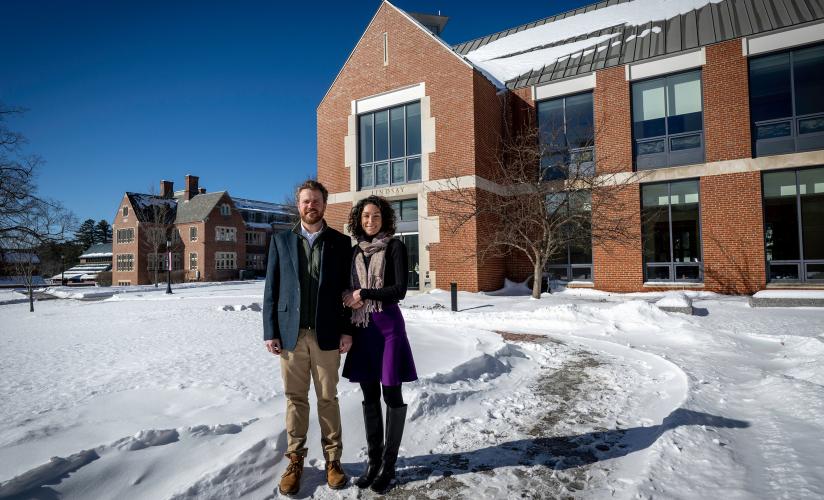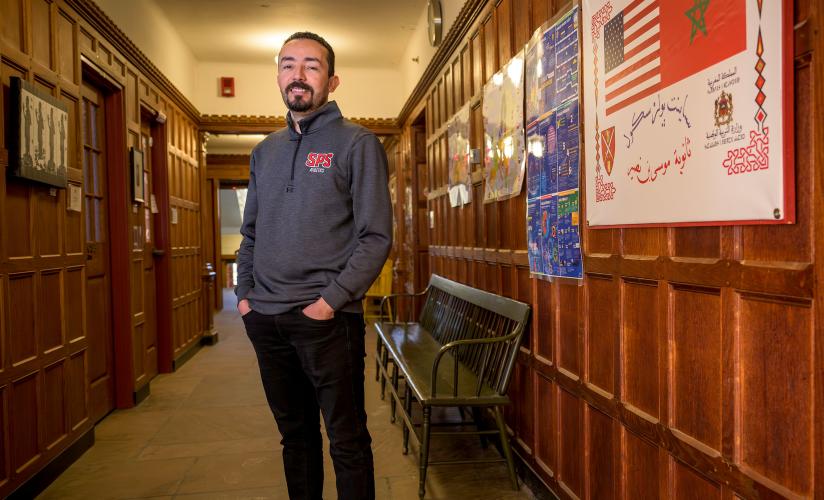

Chapel Talk delivered by The Reverend Charles A. Wynder, Jr. at the start of the new year on Jan. 9, 2023
When I was a teenager, just a few long years ago, I wrote New Year’s resolutions each year. And I took the exercise seriously. While I never used them as a checklist or a report card, I used them as a time to reflect on the first several months of the school year and where I wanted to be in the second half of the school year. See, I saw the start of the new calendar year as a chance to situate myself anew in the middle of the year that mattered most to me — the school year.
It was in these years — my high school years — that I also began to understand the connection between the New Year celebration and special food. I began to appreciate the rituals of eating in my tradition as a Southerner, a Black American Southerner from Virginia: black-eyed peas, collard greens and sweet potatoes. A tradition that is supposed to ensure a prosperous and good year. As I grew into my being over the years, I continued the traditions of cleaning my room, then my apartment, later my house on December 31. The tradition said you start the year off the way you want to continue living. I continued to take time to prepare and eat foods that symbolized the hope of the New Year. And, ultimately, I still take time to reflect on the steps I took the previous year and make commitments about the types of steps and the nature of path I wish to walk in the New Year.
Over the years, I have learned more and more about the traditions of other people at the start of the New Year: learning about an Afro-Cuban tradition of eating 12 grapes after the New Year’s bells ring; or the rich history of the Haitian pumpkin soup that is eaten at the intersection of the New Year and the Celebration of the Independence of Haiti; or the tradition of Watch Night Services and the witness given and proclaimed by members of Black churches about the ways God has acted in their life. A tradition that speaks to the confidence that God will continue to act in our lives in the New Year.
What do you do? What does your family do? What do people in your local community do at the start of the new calendar year to mark the new beginning? Wherever we are from and whoever we are. Whatever our traditions. Whatever foods we eat and rituals we engage, the New Year marks an opportunity for us to reflect on the steps we have taken over the course of the previous year and to reflect on the way we want to live, study, work — be — in the new calendar year. And, our rituals of New Year’s resolutions, special meals, foods and activities — symbolize the opportunity for renewal and fresh starts that the new calendar year represents.
Underneath this is an important belief that things change. That life is always changing. That nothing that is living, is vibrant, and flourishing is stagnant and remains the same. It’s a recognition that life invites us to keep growing, to keep learning. It’s a recognition that in life we will face challenges, setbacks and obstacles. And, if we keep at it long enough, keep the faith and do the work, we can transform that period of difficulty into a period of growth and positive impact. And, if things are going well and we do the same, we can continue to flourish and deepen the quality of our impact. Life changes and we have the capacity as human beings to change with it.
The new calendar year affords us an opportunity to start anew in the second part of our Winter Term. To pivot if we need to pivot in our study habits. To shift how we pay attention and participate in the classroom. To find new ways to engage our students in the classroom and our advisees as we accompany them in their time at St. Paul’s School.
This week and the next few days represent an opportunity to see the world anew; an opportunity to see St. Paul’s School anew; and an important chance to see yourself and each other anew! And, equally important, to act on that new vision of possibilities. To take action — to see a new vision of what’s possible in our life individually and as a community — and to live it out.
For, what you will be you are now becoming. And, what we will be, we are now becoming.
At the start of the Fall Term we began grappling with a fundamental question: Who are we? Who are we as St. Paul’s School? It’s a question that we will continue to ask and continue to answer. As we come back together, over the other side of the Winterim, we invite you to grapple with two related essential spiritual questions: How am I supposed to relate to others? And, how do we relate to each other?
Beginning this week, we will begin to grapple with these questions through the lens of what it means to be of service to the greater good. We will have an alumnus as a guest chapel speaker this week, Ted Landsmark ’64. Dr. Landsmark will help us to expand our thinking about what service is and why it’s important. His chapel talk and classroom engagements will assist us in the exploration of the ethical consideration of the concrete and lived understanding of the greater good. This talk, and the upcoming series of talks from other alumni that are coordinated by the Advancement Office in consultation with our Rector, will focus on the work, lives, leadership and service of SPS alums in service to the greater good.
Ultimately, the invitation at the start of 2023 is for us to reimagine the possibilities of what it means to be who you are becoming individually and who we are becoming as a school. The invitation of 2023 is to revision what it means to study, work and live at St. Paul’s School in service to the greater good. The invitation of the start of 2023 is to vision, imagine and take active steps to build the world anew — in the image of our animated imagination and shared vision that is life giving.
This what our Opening Sentences call on us to do:
From Ella Baker, “Give light and people will find the way.” Let it be so.
From Pauli Murray, “True community is based on equality, mutuality and reciprocity. It affirms the richness of individual diversity as well as the common human ties that bind us together.” Let it be so.
And, from Fannie Lou Hamer, “You can pray until you faint, but if you don’t get up and try to do something, God is not going to put it in your lap.” Let that be so.
For ultimately, I believe our reading from Grace Lee Boggs is instructive and provides a compelling synthesis of what these other great women are telling us:
“Each of us needs to be awakened to a personal and compassionate recognition of the inseparable interconnection between our minds, hearts and bodies; between our physical and psychical well-being; and between ourselves and all others in our country and world.”
So — in these first days together of 2023 — let us all see new possibilities for ourselves and for ourselves; let us all believe in those new possibilities; and act in this season of renewal and fresh starts to live into the fullness of our being.
What you will be, you are now becoming. Let it be so! Amen



